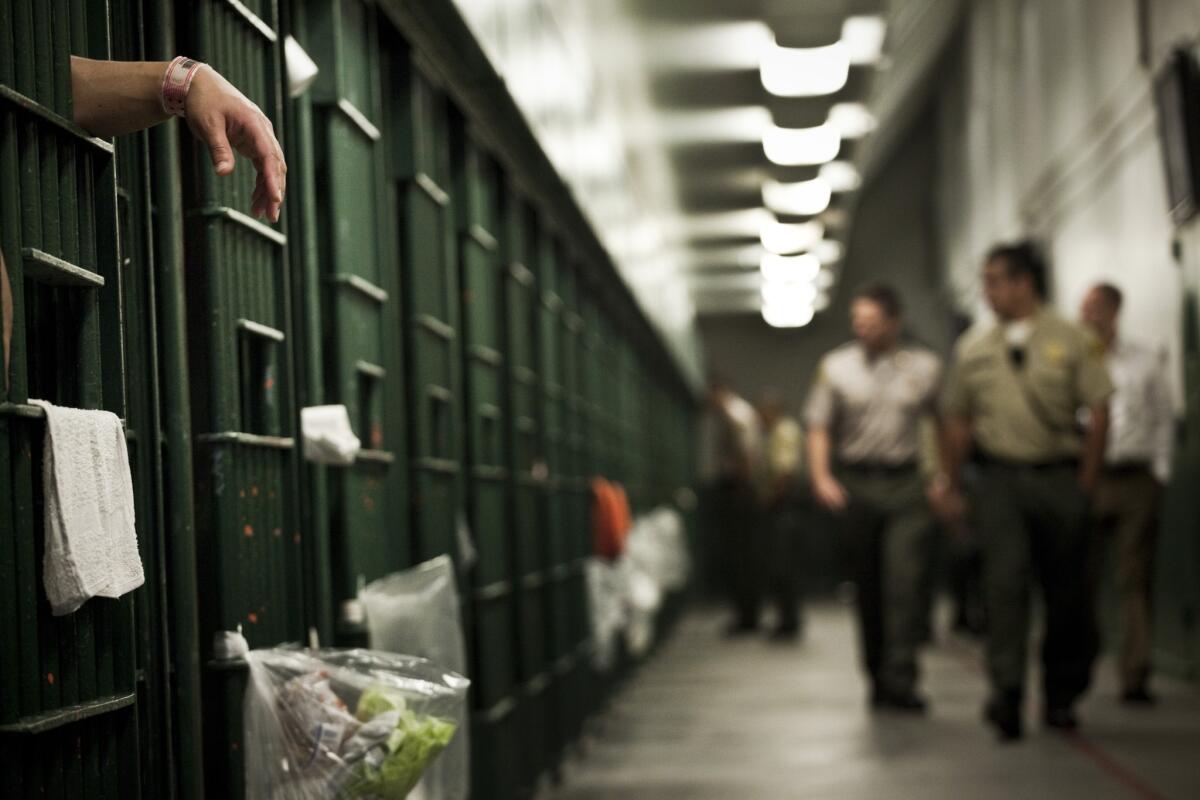Opinion: Congress’ last chance for redemption

From immigration reform to entitlement spending to gun control, compromise has consistently evaded the political imagination and courage of the 113th United States Congress, which carries the dual-distinction of being both the least productive and most unpopular in modern history. But if there is any hope for consensus in this bitter political moment, it may lie in our beleaguered criminal justice system. Save for a recalcitrant few outliers, there seems to be overwhelming agreement on the need to address the problem of mass incarceration, and during the past year, Congress has begun considering a series of bills with bipartisan sponsorship to do just that.
The REDEEM Act is the latest such reform under consideration, following the introduction of the laudable Smarter Sentencing Act and Recidivism Reduction and Public Safety Act. Championed by Cory Booker (D-N.J.) and Rand Paul (R-Ky.), two high-profile, first-term senators with national ambitions and generally discordant political philosophies, the REDEEM Act focuses primarily on overhauling criminal justice for juveniles. The act would incentivize states to raise the age of adult criminal responsibility to 18 years old; automatically seal and, sometimes, even expunge criminal records of nonviolent juvenile ex-offenders; and significantly restrict solitary confinement of juveniles. Additionally, the bill proposes a federal path to sealing records for nonviolent adult ex-offenders, restoring of SNAP and TANF benefits for low-level drug ex-offenders, and improving FBI background checks to reduce false positives.
It is difficult to predict whether the REDEEM Act or any of its peer bills will become law. Many similarly worthy efforts have wound up languishing in committees, victim of this Congress’s collective desire to write itself into history as a legislative horror show. We may have to wait until next session for substantial legislative change. But even the mere possibility of a bill is a shadow of hope in today’s impoverished political landscape.
Such a policy change would constitute a stark reversal from decades past, when the Republican Party’s devotion to its “tough on crime” mantra ushered in an era of irrationally severe punishment and diminished rehabilitation. Contemporary lawmakers, by contrast, have come to understand that our incarceration fetish has led to a poisonous cycle of crime and inequality. In 2010, Congress passed legislation reducing the racially disparate sentencing gap between crack and powder cocaine. Earlier this year, Atty. Gen. Eric Holder announced a dramatic expansion of clemency opportunities for nonviolent drug offenders. The Supreme Court even struck down certain components of life without parole sentences for juveniles. Coupled with a variety of state reforms, including California’s successful Proposition 36 in 2012 to scale back its “three strikes and you’re out” law, these changes have led to a 4% decline in the national prison population since its peak in 2009.
The success of these modest changes only underscores the need for more comprehensive and systematic reform. America is currently home to 5% of the world’s population, but 25% of its prisoners. Since the early 1970s, the nation’s prison population has more than quadrupled to 2.4 million, grossly exceeding the incarceration rate in other democracies. Most state prisoners are locked up for nonviolent crimes, and about 159,000 people are serving life sentences. This ballooning population of incarcerated Americans is born not of increased crime or better policing, but harsher sentencing that includes lengthy mandatory minimum sentencing, three-strikes, truth-in-sentencing, quality of life policing, zero tolerance and other misguided policies. Disturbingly, this has done nothing to curb recidivism. Two thirds of ex-offenders end up getting rearrested within five years of their release. It’s easy to understand why, as criminal records provide considerable roadblocks to employment, housing, voting and higher education. At the same time, the trauma incurred from solitary confinement and other inhumane measures taken in prisons can make reintegration even more difficult.
This system has come with a hefty price tag – $80 billion annually on direct correctional expenses alone, according to the Brookings Institution’s Hamilton Project. It has also inflicted a considerable moral cost. Dozens of reports decry the inefficiency and injustice of our criminal justice system, and an exhaustive study prepared by the research arm of the National Academy of Sciences succinctly declared that the United States “has gone past the point where the numbers of people in prison can be justified by social benefits.” Importantly, these numbers are dominated by people of color, perpetuating the country’s racial inequality. People of color account for about 30% of the United States’ population, but they comprise 60% of those behind bars. Once convicted, black offenders receive longer sentences and face disparities in wage trajectory after release from prison.
No matter the focus on their individual concerns, be they swelling budgets or social injustice, most of our leading politicians are finally coming to realize that our criminal justice system is broken. Their view is more informed. The old Nixon-era slogans about getting “tough on crime” turned out to be a cheap piece of rhetoric that led to heedless policy and has cost the country an untold price. Until we seize this rare moment of bipartisanship to bring about substantial reform, all of us will continue to pay for it.
Follow me on Twitter @NoahRemnick
More to Read
A cure for the common opinion
Get thought-provoking perspectives with our weekly newsletter.
You may occasionally receive promotional content from the Los Angeles Times.






